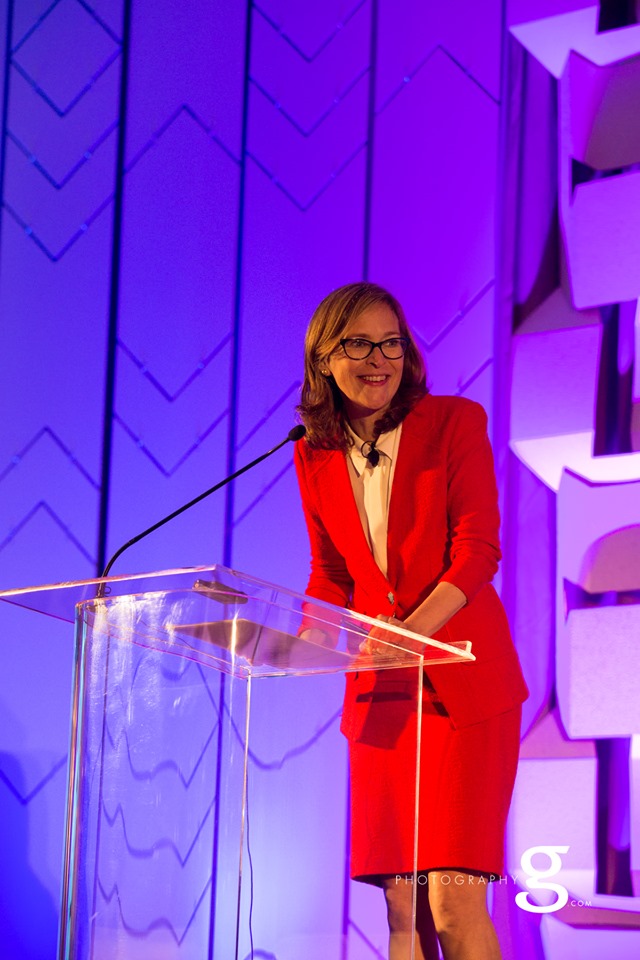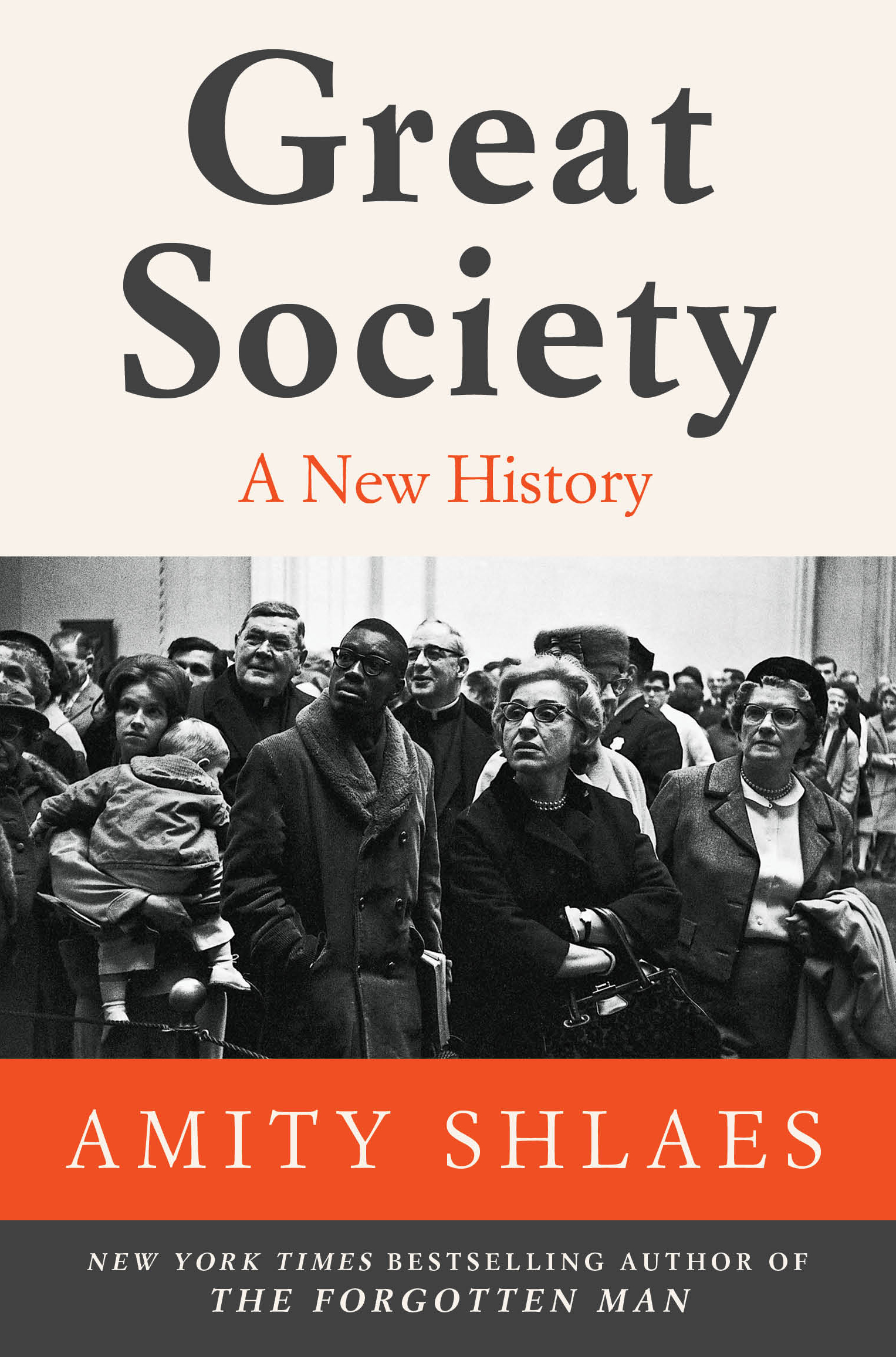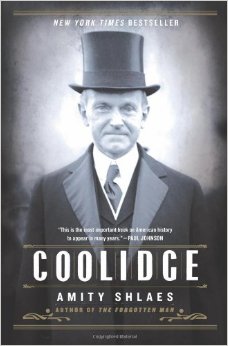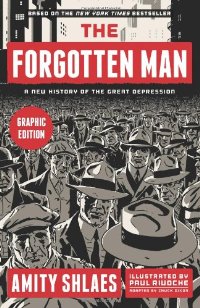Renowned Economic Thinker & Leading Presidential Historian
“Amity Shlaes was an excellent speaker for the Women’s Global Leadership Conference, the largest conference for women in the energy industries. She was able to speak to the economic issues confronting the industry. But more impressive was her ability to give business cases and tell personal anecdotes that related to the professional women in attendance. She was an excellent opening keynote and stage setter for our event.”
—John Royall, President & CEO, Gulf Publishing Company
Amity Shlaes, a sought-after keynote speaker who places the current economy in the context of the past has given speeches and lectures covering a wide range of topics to financial institutions, corporations, colleges, universities, and historical societies. One of America’s premier economic historians, she is the author of six books, among them four New York Times bestsellers: Great Society: A New History, The Forgotten Man: A New History of the Great Depression, Coolidge, The Forgotten Man/Graphic, The Greedy Hand: Why Taxes Drive Americans Crazy and Germany: The Empire Within. Shlaes is winner of the Frederic Bastiat and Hayek Prizes. She wrote a weekly column for more than a decade, first the Financial Times and then Bloomberg. Before that, she served on the editorial board of the Wall Street Journal. Shlaes is an advisor to the C-Span Quadrennial Presidential poll, and chairs the board of the Calvin Coolidge Presidential Foundation, which gives the prestigious Coolidge Scholarship, and recently co-edited, with Matthew Denhart, a new edition of Coolidge’s autobiography. In 2021, Shlaes was awarded the Bradley Prize.
Shlaes commenced her career at The Wall Street Journal, where she was an editorial board member. Over the years she has published as well as in The New Yorker, Fortune, National Review, The New Republic, and Foreign Affairs. She has appeared on PBS’s News Hour with Jim Lehrer, Comedy Central’s The Daily Show, Fox News’ Glenn Beck, ABC’s Good Morning America, Charlie Rose, CNBC’s Kudlow, contributes to Public Radio International’s Marketplace, and Bloomberg radio.
Great Society is Shlaes’s stunning revision of our last great period of idealism, the 1960s, with burning relevance for our contemporary challenges that the Wall Street Journal calls “an illuminating alternative to sentimental reminiscences of liberals’ attempts in the 1960s.” Today, a battle rages in our country. Many Americans are attracted to socialism and economic redistribution while opponents of those ideas argue for purer capitalism. In the 1960s, Americans sought the same goals many seek now: an end to poverty, higher standards of living for the middle class, a better environment and more access to health care and education. Then, too, we debated socialism and capitalism, public sector reform versus private sector advancement. Time and again, whether under John F. Kennedy, Lyndon Johnson, or Richard Nixon, the country chose the public sector. Shlaes shows how Johnson’s and Nixon’s programs shackled millions of families in permanent government dependence. Ironically, Shlaes argues, the costs of entitlement commitments made a half century ago preclude the very reforms that Americans will need in coming decades.
Coolidge is both follow up and precursor to her much lauded The Forgotten Man, a book that continues to spark discussion and debate. In Coolidge she delivers a brilliant and provocative reexamination of America’s thirtieth president and the enormous economic growth he helped to produce. After a divisive period of government excess and corruption, Coolidge restored national trust in Washington and achieved what few other peacetime presidents have: he left office with a federal budget smaller than the one he inherited. In her Coolidge talks Shlaes shows that the restraint that sometimes earned him ridicule was in fact his greatest strength: he reduced the federal budget during this time in office even as the economy grew, wages rose, taxes fell, and unemployment dropped. Her speeches reveal the lessons that financial institutions, municipal governments, politicians, corporations, insurance companies, philanthropic organizations, and educators can take away from Coolidge’s vastly under-rated presidency.
Shlaes graduated magna cum laude from Yale and studied at the Free University in Berlin on a DAAD fellowship. Yale named her to its “Who’s Been Blue,” list of most distinguished alumni. She lives with her family in New York.
Praise for Amity Shlaes’ Speeches and Lectures
“Ms. Shlaes’ presentation at The New York Hedge Roundtable was extremely well received by the membership as her discussion of government overreach in the poultry and utility industries during the 1930s is similar to the transformational changes currently occurring in the hedge fund industry in the form Dodd-Frank regulations. The membership was very engaged throughout Ms. Shlaes’ presentation that offered thought-provoking solutions that reversed government overreach during the 1930s and potentially in the future for the financial services industry. The NYHFR was honored to have Ms. Shlaes, a tireless advocate of free markets and limited government, speak to our membership.”
—New York Hedge Fund Roundtable
“Amity Shlaes’s electric sessions are long remembered by our clients; her facts and wisdom couldn’t be more relevant to investment today.”
—Jason deSena Trennert, Strategas
“Miss Shlaes couldn’t have had a better response at Phillips Exeter Academy.”
—Arthur Seeligson, Jr., Phillips Exeter Academy
“Amity Shlaes is a thought-provoking, gifted speaker who also went out of her way to be accessible, engaging, and personable with attendees at The Research Bureau’s annual meeting.”
— Roberta R. Schaefer, Ph.D., President & CEO, The Research Bureau
“Amity Shlaes recently provided a wonderfully informative and entertaining afternoon exploring the Great Depression and the lessons learned during the Nation’s prolonged recovery. Her book The Forgotten Man brought the period to life and has made its insights very relevant to today’s economic landscape. Her presentation is equally relevant and revealing.”
— Richard Varner, Education Chairperson, Southern California Chapter of the World President’s Organization, (WPO)
“Amity has great insights from a political and economic perspective. Some of our solutions can be found by a thorough understanding of our history.”
—ASFIP (Atlanta Society For Investment Professionals)
“Amity Shlaes spoke to a sold-out crowd at the National Historic Landmark, Charles Gates Dawes House and the event was a smashing success. Ms. Shlaes is not only a first-rate speaker; she is also a first class intellectual. Her talk was brilliant. Her insightful and highly entertaining remarks enthralled our audience.”
—Jenny Thompson, PhD, Director of Education, Evanston History Center
“Amity Shlaes held a full house of attendees spellbound for 45 minutes as she weaved together political theory and history with statistics and anecdotes about three American presidents—Calvin Coolidge, Franklin D. Roosevelt, and Donald Trump. After her lecture she deftly responded to a wide range of questions on many aspects of the subject. Shlaes blends humor and anecdote brilliantly and helps make a complex subject easy to comprehend.”
—Walter Harrison, President of University of Hartford
“We were very happy to host Amity Shlaes on the topic of her bestseller, Coolidge. Her passion and dedication to the subject was evident, and she did a fantastic job of bringing our 30th President to life for her audience – many of whom were likely learning about him for the first time. It was a great program.”
—The Federalist Society, Long Island Lawyers Chapter
“Amity Shlaes spoke on a topic that could not have been timelier. She delivered an engaging, lively, and informative lecture. Her interest in us made this a very successful event.”
— Leon Tabak, Department of Computer Science, Cornell College
“In her talk, Amity Shlaes opens the mysterious ‘black box’ surrounding that most perplexing topic – the Great Depression. Mixing charming anecdote with sweeping economic analysis she told us what is vital for policymakers who would ‘govern’ the economy: predictable laws protecting private property, a stable banking system providing capital for creditworthy borrowers, and a non-confiscatory tax system. . . Anyone interested in good economic policy ought to hear what she has to say.”
— Greg Bell, Lieutenant Governor of Utah
“Amity Shlaes is a sharp and controversial speaker who will provoke an audience to think and to ask hard questions. Her clear reasoning crystallizes for the public the most important economic decisions of the Roosevelt era and the present day as well.”
— William Glenn Gray, Purdue University
“Amity Shlaes has the gift to relate to everyone in the room. The positive feedback from our students about her talk was overwhelming. And her event was one of our largest Distinguished Speaker events ever.”
— Laura Frazier, Williams College of Business, Xavier University
“Amity is brilliant. Her knowledge of the 1920’s and President Coolidge is unmatched and provided a roadmap for the elected officials who joined us! It was a memorable experience!”
—Chris Cargill, Washington Policy Center
“Amity Shlaes is a dynamic and interesting speaker who also has the ability to tease out historical nuggets that bring her historical subjects to life.”
—Paul Gessing, President of the Rio Grande Foundation
“Amity gave an insightful lecture that really held student attention. She was also engaging with the select students that got to have one-on-one time with her.“
—Robert T. Burrus, Jr., Chair, Department of Economcis and Finance
University of North Carolina Wilmington
Amity Shlaes gave a pitch-perfect speech, and our audience loved her. We invited Amity because she is a clear and original thinker and a truly talented writer. We learned that she’s also a gracious person and an excellent speaker. What a rare and special combination!”
—Dr. Mary Beth McConahey, Fellow in Civic & Political Affairs
Saint Vincent College Center for Political & Economic Thought
“Amity is an intelligent, engaging speaker. She is a kind guest, and has a level of humility that is surprising for someone as accomplished as she is. Book her! I promise that you won’t be disappointed.”
—Dr. John Hilston, Eastern Florida State University
“Amity Shlaes surprised and enlightened our audience of history lovers with her brilliant new take on Calvin Coolidge. His silence and taciturnity became strong rather than weak, an effective tool rather than a deficiency. Her complete mastery of her subject is enhanced by her natural charm and intelligence. She turns research into a fascinating, thought-provoking tale, delivered with wit and humor that connect her (and the subject) to the audience.”
—Jean Perkins, President, The National Society of The Colonial Dames of America
in the State of Illinois
“Amity easily connected with our audience, which stimulated a lively question and answer period following her talk. She was generous with her time and extremely gracious to everyone who asked questions or approached her after the lecture.”
— Mimi Rogers, Curator, Coastal Georgia Historical Society
Praise for The Great Society: A New History
“An illuminating alternative to sentimental reminiscences of liberals’ attempts in the 1960s…to banish poverty in America. Her account is original and persuasive, presenting the leading poverty warriors not with scorn but with sympathy and piercing insight….Ms. Shlaes’s chronicle is not just a story of how good people’s good intentions went wrong. It is also a story of how the assumption that the near future will closely resemble the recent past can lead even the best intentioned and most well-informed people to pursue policies that turn out to be mostly counterproductive and often destructive.”
—Wall Street Journal
“Shlaes’s account of America in the 1960s recalls her 2007 The Forgotten Man about America in the 1930s, and finds — guess what? — a complicated nation. The author writes with a free style, including information on lesser-known figures of the era, as well as an interesting assessment of Presidents Lyndon B. Johnson and Richard Nixon.”
—Washington Post
“Gripping…the lesson for the future could not be clearer.”
—John Taylor, Wall Street Journal
“This well-researched and smoothly written masterpiece sheds a badly needed lesson-laden light on one of the most important and turbulent times in American history. Shlaes has rendered a book for the ages.”
—Steve Forbes
“Great Society is accurate history that reads like a novel, covering the high hopes and catastrophic missteps of our well-meaning leaders.”
—Alan Greenspan
“In this momentous election year, Amity Shlaes’s superb book is … a must-read book for this seminal election.”
—The Hill
“Amity Shlaes provides a fresh appraisal of the idealistic policies that came to define the 1960s and a historical narrative that is especially timely now.”
—American Thinker
“A provocative, well-argued take on a turbulent era.”
—Kirkus Reviews
Praise for Coolidge
“[Shlaes’s] biography is thus both timely and important. . . The Coolidge years represent the country’s most distilled experiment in supply-side economics – and the doctrine’s most conspicuous success. That success is the central Coolidge legacy, brought home with telling authority in Ms. Shlaes’s work. This book’s time is propitious. As the nation faces a looming economic crisis wrought in large measure by mounting public debt, the Coolidge experiment offers insights into what an alternative course might look like. Ms. Shlaes has given us a detailed examination of that alternative course.”
“History has paid little attention to the achievements of Coolidge because he seemed to be unduly passive. Yet Amity Shlaes, as his biographer, exposes the heroic nature of the man and brings to life one of the most vibrant periods in American economic history.”
— Alan Greenspan
“Calvin Coolidge – the tight-fisted, reticent New Englander – hasn’t ranked high in the Presidential pantheon. Amity Shlaes’s new biography carries a different and highly relevant message: The need for fiscal discipline, the power of saying no, the capacity of a reserved and modest man to draw upon resources of personal conviction and unquestioned integrity to take forceful action. Read Coolidge, and better understand the forces bearing on the President and Congress almost a century later.”
— Paul A. Volcker
“Why the 1920s roared is a question that grows timelier with every new glum economic report. In Calvin Coolidge, Amity Shlaes finds the human piece that solves the puzzle.”
— James Grant, author of Bernard Baruch: The Adventures of a Wall Street Legend
“Dorothy Parker and Sinclair Lewis taught America to mock Calvin Coolidge, but in this marvelous book that is in many respects as subtle and powerful as Coolidge himself, Amity Shlaes blows that injustice out of the water. Her masterly command of economics, policy, and personal portraiture illustrates the times, talents, character, and courage of the consummate New Englander and his gracious wife. When you read of the death of their son, you will be linked to them forever. If you have a free intelligence you will see past Coolidge’s natural modesty to his greatness. And if you have a heart you will come to love the Coolidges for their unadorned humanity.”
— Mark Helprin, author, Winter’s Tale
“A story with plenty of echoes today. Alice Roosevelt Longworth, doyenne of the Washington salons, first disdained Coolidge, then admired him. After reading Coolidge, every reader will, too.”
— Anne Applebaum, Pulitzer Prize winner, author Iron Curtain
“Everyone who aspires to political office from the president on down must read this magnificent masterpiece. Even Boswell would have been impressed.”
— Steve Forbes, Forbes magazine
“In Coolidge, Amity Shlaes provides a much-needed fresh look at Calvin Coolidge, a man and president long subject to unflattering caricature. Her success in doing so comes from thorough and persistent research that rewarded her with revealing materials long hidden in the shadows in libraries, archives, and manuscript collections. In my opinion, all students of the American presidency are in Shlaes’s debt for this scholarly work.”
— Jerry L. Wallace, Retired Senior Archivist, National Archives
“To read Amity Shlaes’s well-crafted biography is to understand why Reagan so admired the famously reticent man whom Shlaes calls ‘our great refrainer.’”
— George F. Will
“Amidst today’s economic hardships and an uncertain future, Shlaes illuminates a path forward – making Coolidge a must-read for policymakers and citizens alike.”
— Paul Ryan
Praise for The Forgotten Man
“Amity Shlaes is among the most brilliant of the young writers who are transforming American financial journalism.”
— Paul Johnson, author of Modern Times
“Amity Shlaes not only manages to keep you wide awake, she also sets your blood to boiling. Even if you don’t always agree with her conclusions, she defines the debate over what we ought to do and gets you thinking constructively about the problems she identifies.”
— New York Times
“If the spectacle of modern Washington makes you wince, and if you wonder how that city came to be such an unseemly maelstrom of grasping factions, this book explains the present by precisely locating its genesis in the past. In 1936, to be precise, President Franklin Roosevelt then accurately boasted that he had fashioned a ‘new relationship between government and people.’ Americans just now need what Amity Shlaes has brilliantly supplied, a fresh appraisal of what the New Deal did and did not accomplish. She demonstrates that it did not bring about economic recovery, but it did invent modern American politics – the systematic and unending creation of interest groups dependent on government benefits. And she recognizes heroes – Wendell Willkie, for one – who, thanks to her, are unsung no more.”
— George F. Will
“A well-written and stimulating account of the 1930’s and its often dubious orthodoxies… Ms. Shlaes rightly reminds us of the harmful effect of Rooseveltian activism and class-warfare rhetoric.”
— Wall Street Journal





